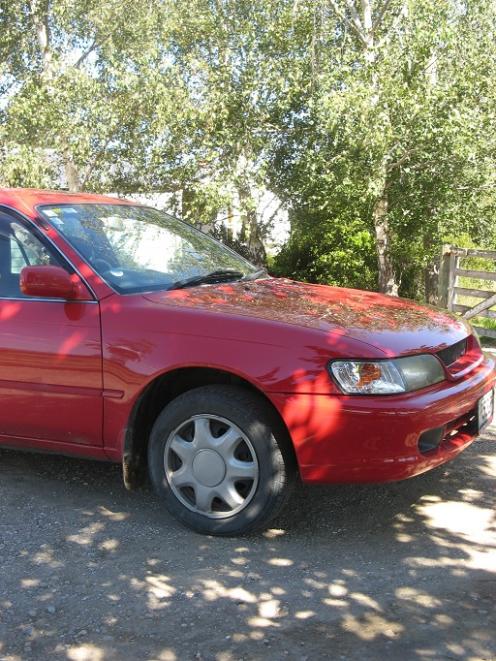
Most households will have at least one private vehicle in the driveway.
Some will have two, or three, or four.
It is not uncommon for each household member old enough to drive to have their own vehicle.
Modern consumerism has led to models of private ownership of lands and goods.
Ownership has long been associated with social status and become a dominant display of wealth within and between communities.
But more than that, it is very convenient to have personal, private ownership of an item.
However, this is quite inefficient.
Private vehicles, for example, are stationary and unused 90% of the time.
Wouldn't it be great if instead of owning a vehicle, we could just access a vehicle for the periods for which it were required, and allow other people to use the same vehicle when they needed it?
Well, this is already happening.
It is called ''collaborative consumption'', and this exists within the ''sharing economy''.
The sharing economy provides a way for families, friends, communities, neighbourhoods and strangers to come together to achieve their transportation goals, collectively.
The idea isn't new.
We have been sharing books from the library, DVDs from the video store, and toys from the toy library for some time.
So how is sharing a vehicle - either a motorised vehicle, car or motorbike, or a bicycle - different?
Overseas, the popularity of car-sharing schemes is rapidly growing.
These schemes take many different shapes, including facilitating sharing among friendship groups, individuals (or ''microentrepreneurs'') renting out their vehicles at times when they would otherwise be unused, and formal car-sharing companies.
The internet has facilitated much of this sharing.
Informally, it has been happening for a while.
Facebook is littered with status updates such as: ''Is anyone driving to ... next week, will provide gas $$ and good chat'' and ''Anyone have a car I can borrow for a few hours on Saturday?''.
These peer-to-peer networks are allowing people to negotiate the formal structures of rental and lease, and to get access to the items they need, when they need them.
Opportunities for formal sharing are also establishing themselves across urban New Zealand.
Cityhop, New Zealand's first car-sharing company, is now available in Auckland, Wellington and Christchurch.
They have cars available across the city centres which are available to its members, with payment by the hour.
Ride-sharing, on the other hand, is being facilitated by New Zealand Car Share.
Using its website, members can find people doing the same journey and travel together, thereby sharing costs and reducing the number of vehicles on the road.
This will help to ease congestion while also lessening our transport-related carbon emissions.
Rachel Botsman and Roo Rogers, authors of What's Mine is Yours: The Rise of Collaborative Consumption argue that: ''In the twenty-first century of Collaborative Consumption we will be defined by reputation, by community, and by what we can access and how we share and what we give away''.
Isn't that a lovely thought?
• Debbie Hopkins is a postdoctoral research fellow at the University of Otago Centre for Sustainability.
Each week in this column, one of a panel of writers addresses issues of sustainability.











